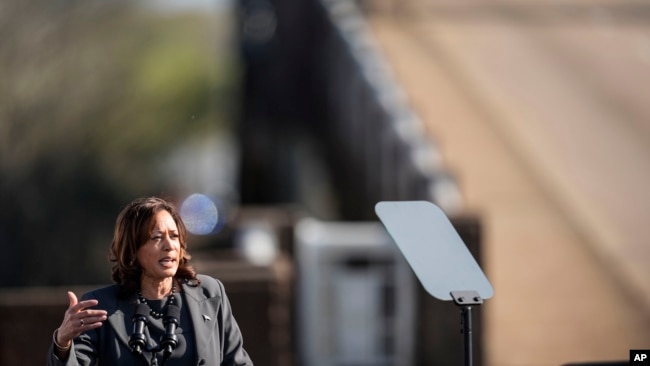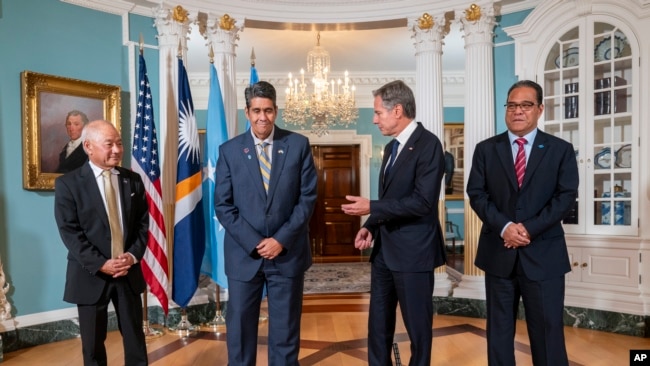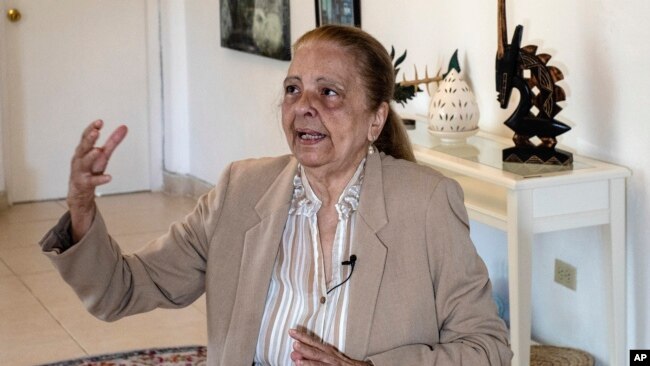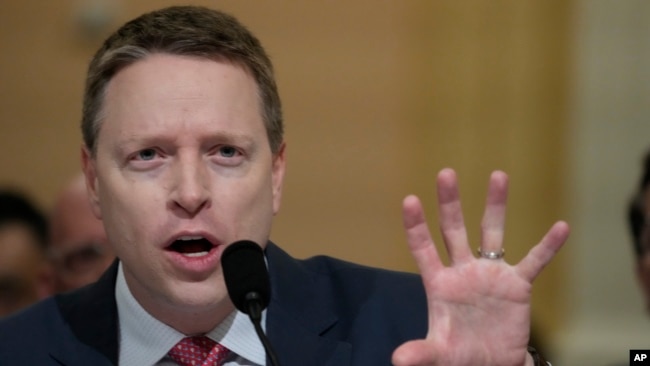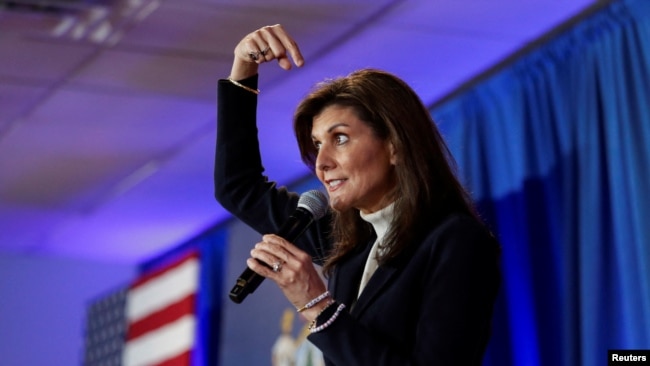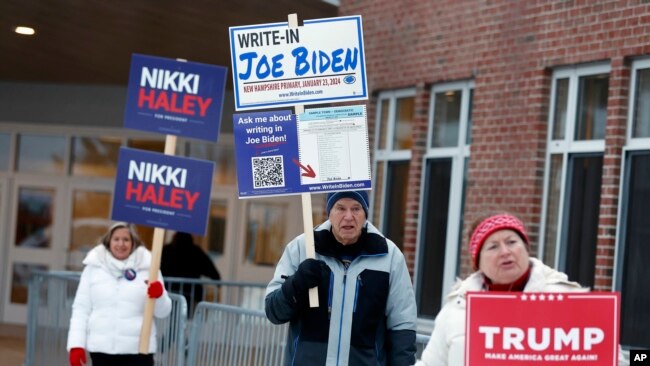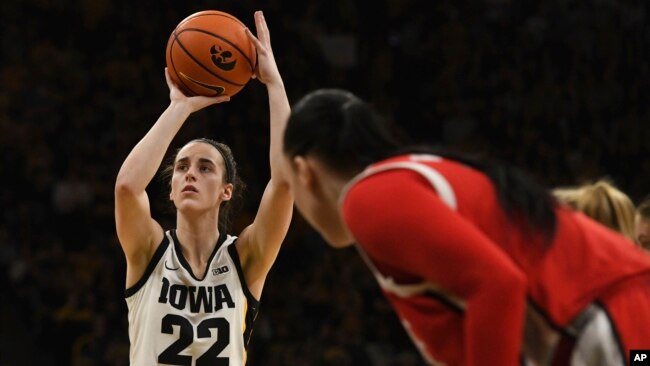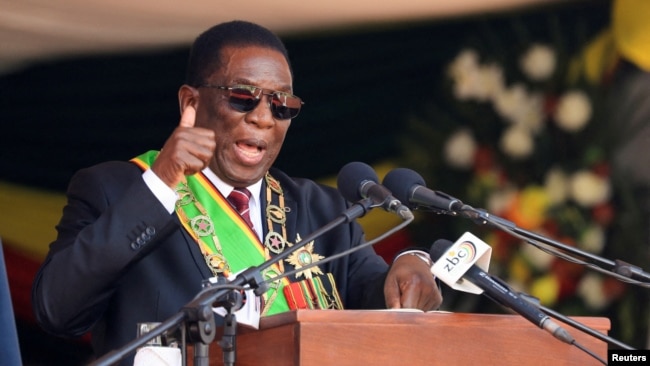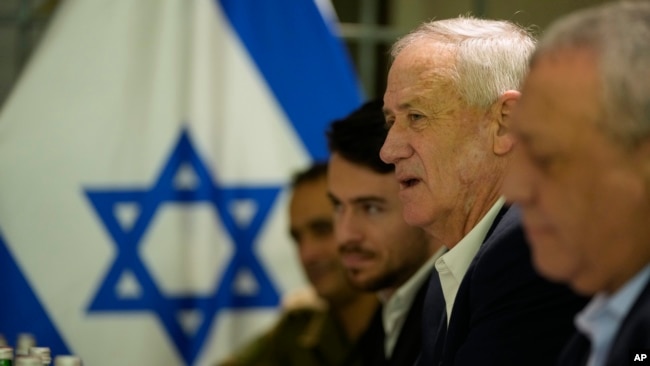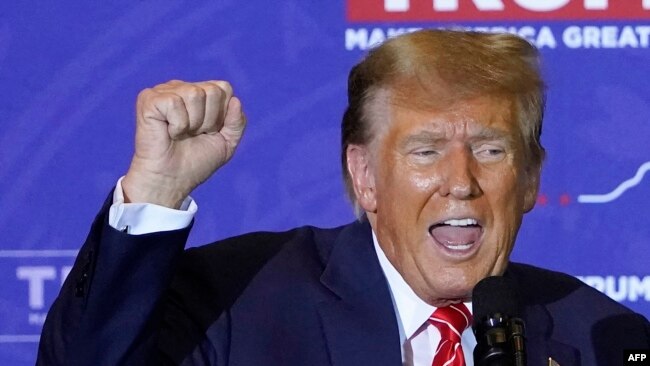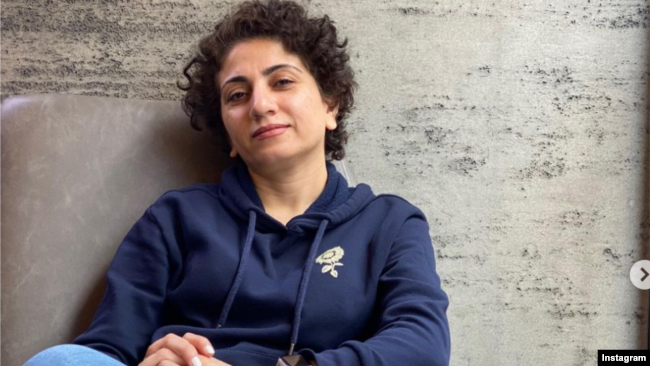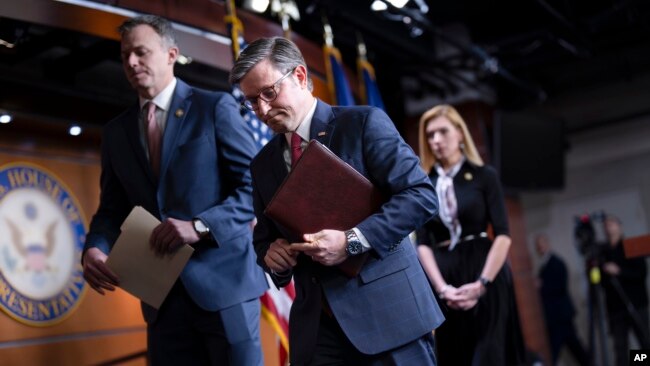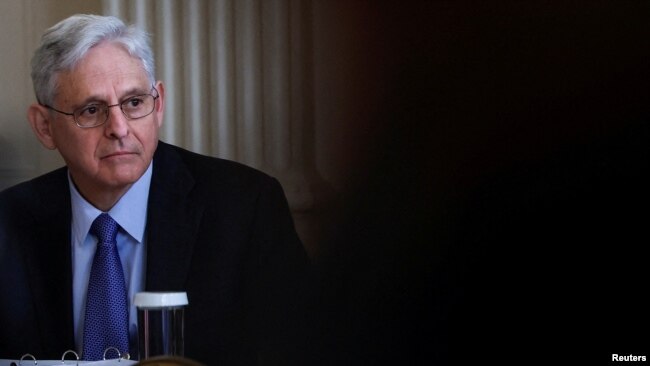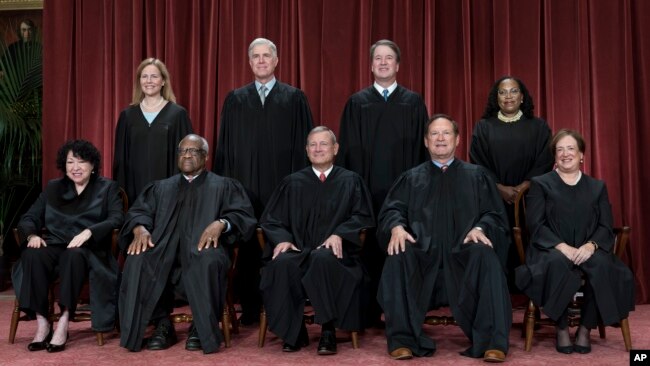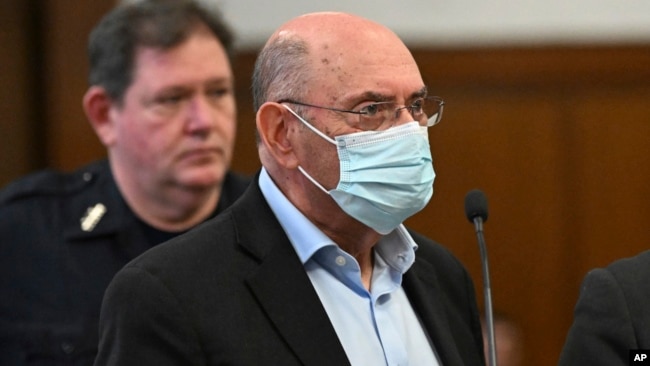VOA 인터뷰입니다. 린다 토마스 그린필드 유엔 주재 미국 대사입니다.
VOA Interview: US Ambassador to UN Linda Thomas-Greenfield
페이지 정보
작성자 Hayde Adams 작성일 21-10-13 21:06 댓글 0본문
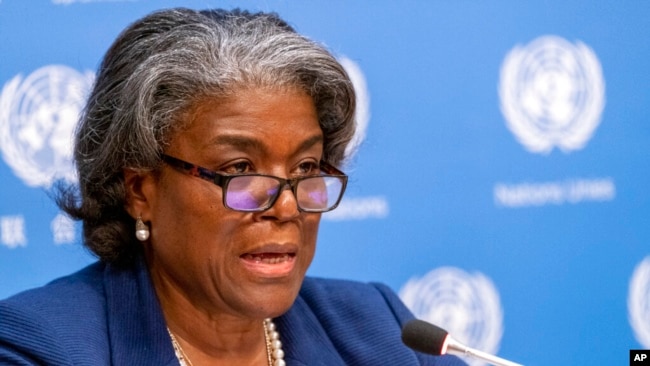
파일 - 2021년 3월 1일 이 사진에서 린다 토마스-그린필드 유엔 주재 미국 대사는 유엔 본부에서 가진 기자회견에서 기자들에게 말했습니다.
FILE - In this March 1, 2021 photo, US Ambassador to the United Nations Linda Thomas-Greenfield speaks to reporters during a news conference at United Nations headquarters.
린다 토마스 그린필드 대사는 올해 초 조 바이든 대통령이 그녀를 유엔 대표로 지명했을 때 공직에 복귀했습니다.
Ambassador Linda Thomas-Greenfield returned to public service earlier this year when President Joe Biden nominated her to be the representative of the United States to the United Nations.
이 노련한 외교관은 미국의 사하라 사막 이남 아프리카 정책에 주요 역할과 국무부 내 경영 지도부 직책을 포함한 미국 외교부에서 35년간 근무했습니다. 그녀는 또한 라이베리아 대사를 지냈고 케냐, 감비아, 나이지리아에서 외국 공고를 받았습니다.
The veteran diplomat had a 35-year career with the U.S. foreign service that included major roles in U.S. policy toward sub-Saharan Africa as well as management leadership positions within the State Department. She also served as ambassador to Liberia and had foreign postings in Kenya, Gambia and Nigeria.
토마스-그린필드는 미국-아프리카 비즈니스 서밋 기간 중 VOA 스트레이트 토크 아프리카 주최자인 헤이드 아담스와 만나 아프리카에 대한 미국의 정책, 이 지역 국가들이 어떻게 대유행으로부터 회복하고 있는지, 그리고 왜 여성들이 그 노력에 중심적인 역할을 해야 하는지에 대해 말했습니다.
Thomas-Greenfield spoke with Hayde Adams, the host of VOA’s Straight Talk Africa, during the U.S.-Africa Business Summit about U.S. policy toward Africa, how countries in the region are recovering from the pandemic, and why women should play a central role in that effort.
다음 인터뷰는 명확성과 간결성을 위해 편집되었습니다.
The following interview has been edited for clarity and brevity.
VOA:올해 초, 당신은 아프리카는 많은 도전:COVID-19, 물론, 빈곤, 테러리즘, 많은 다른 사람들 사이에서 화답했다.하지만 또한 바이든은 행정부는 기회가 대륙 위는 도전 조정할 필요가 있이해한다고 말했다.무엇이 미국 아프리카 대륙에서 오늘이 볼 수 있는 위대한 기회가 있다?
VOA: Earlier this year, you acknowledged that Africa has many challenges: COVID-19, of course, poverty, terrorism, amongst many others. But you also said that the Biden administration understands that it needs to focus on the opportunities on the continent and not just the challenges. What are the greatest opportunities that the United States sees on the African continent today?
린다 토마스-그린필드: COVID-19가 아프리카를 강타하기 전에, 아프리카 경제는 세계에서 가장 빠르게 성장하는 경제 중 일부였습니다. 그리고 가장 빠르게 성장하는 10개국 중 6개국 정도가 아프리카 대륙에 있었습니다. 저는 이 나라들이 우리가 여기 미국에서 말한 것처럼 더 잘 성장할 수 있는 많은 기회들을 보고 있습니다. 그리고 그들은 더 공평한 성장과 더 많은 다양성, 더 시장 기반의 투명한 관행과 기후 스마트 미래에 초점을 맞추면서 더 잘 성장할 수 있습니다. 그리고, 아프리카 대륙의 시장에서 중요한 역할을 해온 여성들을 위한 형평성에 초점을 두고 덧붙여야 합니다.
Linda Thomas-Greenfield: Before COVID-19 hit Africa, African economies were some of the fastest-growing economies in the world. And somewhere between six out of 10 of the top fastest-growing countries were on the continent of Africa. I see many opportunities for these countries now to build back better, as we have said here in the United States, and they can build back better with more equitable growth, with more diversity, with more market-based transparent practices and with a focus on climate smart futures. And also, I have to add, with a focus on equity for women who have been key players in the marketplace on the continent of Africa.
기후변화부터 시작하겠습니다. 기후 변화는 전 세계 우리 모두에게 도전 과제입니다. 하지만 그것은 또한 세계가 재생 에너지로 전환하고 국가들이 배출량을 줄이고 기후 변화에 적응하도록 도울 수 있는 혁신적인 기술을 개발함에 따라 아프리카 대륙에서 보수가 좋은 일자리를 창출할 수 있는 엄청난 기회를 제공합니다. 예를 들어, 우리는 개발도상국들이 공공 기후 금융을 통해 더 친환경적인 환경을 구축할 수 있도록 확실히 하기 위해 노력하고 있습니다. 아프리카는 13억의 인구와 19세의 중간 연령을 가지고 있습니다. 아프리카의 젊은이들은 아마도 아프리카의 가장 위대한 자원들 중 하나일 것입니다. 예를 들어, 젊음을 문제로 보는 경향이 있습니다. 하지만 아프리카 대륙에게 젊음은 기회이고, 그들은 대륙이 이용해야 할 기회입니다.
So let me start with climate change. Climate change is a challenge for all of us all over the globe. But it also presents a tremendous opportunity to create well-paying jobs on the continent of Africa as the world transitions to renewable energies and develops transformational technologies that can help countries reduce emissions and also adapt to climate change. We're committed to making sure, for example that developing countries can build back greener through public climate financing. Africa, with a population of 1.3 billion people with a median age of 19 ... Africa's youth are probably one of its greatest resources. There's a tendency to see youth, for example as a problem. But for the continent of Africa, youth are an opportunity, and they are an opportunity that the continent needs to take advantage of.
VOA:이후 이 전염병 그리고 이 모든 것은 크게 델타 변형이 주도하기 시작했다 많은 아프리카 국가들 현재 COVID-19 발병과 사망에 최악의 해일을 겪고 있다.무엇을 대륙에서 지금 보고 있는 것이 가장 우려하는 대유행 트렌드는?그리고 아프리카 정부는 이 쌍둥이 건강과 경제 위기를 대응해 왔다에 대한 여러분의 평가는?
VOA: Many African nations are currently experiencing their worst surge in COVID-19 cases and deaths since this pandemic began and it's all largely driven by the delta variant. What are the most worrying pandemic trends that you are seeing on the continent right now? And what is your assessment of the way African governments have responded to these twin health and economic crises?
토마스-그린필드입니다. 이 대유행은 아프리카 국가들의 경제에 파괴적인 영향을 끼쳤습니다. 지난 18개월을 돌이켜보면, 아프리카 지도자들이 COVID-19에 맞서기 위해 초기에 취했던 많은 행동들이 수많은 생명을 구했습니다. 이 나라들 중 많은 나라가 문을 닫았습니다. 그들 중 다수는 에볼라를 다뤄야 했을 때 이미 전염병과 같은 상황을 다뤄본 경험이 있습니다.
Thomas-Greenfield: This pandemic has really had a devastating impact on the economies of African countries, and as we reflect back on the last 18 months, I have to say that many of the actions that were taken by African leaders to confront COVID-19 early on have saved countless lives. Many of these countries shut down. Many of them had already had experiences dealing with pandemic-like conditions when some of them had to deal with Ebola.
그러나 상황은 계속 악화되었고, 특히 아프리카 국가들이 이러한 백신이 출시되자 COVID 백신을 접할 수 없었습니다. 그리고 그들은, 예를 들어, 그들의 매우 취약한 의료 시스템에 대한 도전으로 인해, 준비되지 않았고, 국가들은 흔들리기 시작했습니다. 그리고 이 새로운 델타 변종과 함께, 제 생각에는 상황이 더 악화될 것 같습니다. 여러분은 아마도 바이든 대통령이 미국이 세계 백신의 무기가 될 것이라고 방금 발표하고 서약했다는 것을 알고 있을 것입니다. 그 말 마음에 들어요. 그리고 우리는 가능한 한 빨리 무기에 주사를 맞기 위해 노력하고 있습니다. 이곳 미국뿐만 아니라 COVAX (Gavi, 백신 동맹, 전염병 대비 혁신 연합, 세계보건기구가 주관하는 COVID-19 백신에 대한 공정한 접근을 목표로 하는 세계적인 이니셔티브)를 통해 많은 백신을 이 나라에 보급하기 위해 노력하고 있습니다.백신의 상호 기부를 통해서 뿐만 아니라 가능한 아프리카에도 없습니다. 그래서 우리는 단지 질병과 싸우는 것이 아니라, 전염병이 풀릴 수 있는 수십년간의 개발 진보를 확보하기 위해 싸우고 있다는 것을 알게 되었습니다.
But the situation continued to get worse and particularly as African countries were not able to access the COVID vaccines once these vaccines came on board. And they were not prepared, for example, with the challenges to their very weak health care systems, the countries began to falter. And with this new delta variant out there, I think the situation is going to get even worse. You may know President (Joe) Biden has just announced and pledged that the United States will be the world's arsenal of vaccines. I love that phrase. And we're working as fast as we can to get shots in arms, not just here in the United States but through COVAX (a worldwide initiative aimed at equitable access to COVID-19 vaccines directed by Gavi, the Vaccine Alliance, the Coalition for Epidemic Preparedness Innovations and the World Health Organization) to get as many vaccines out to the continent of Africa as possible, as well as through bilateral donations of vaccines. And so we see that we're not just fighting the disease, we're fighting to secure decades of development progress that the pandemic could unwind.
VOA: 아프리카 대륙과 COVAX의 약속을 넘어서는 미국을 위한 기회들을 고려해 볼 때, 미국은 전 세계 경제가 회복하려고 할 때 아프리카가 뒤처지지 않도록 하기 위해 기꺼이 무엇을 하고 있습니까?
VOA: Given the opportunities for the U.S. on the African continent and beyond the COVAX commitments, what is America willing to do to ensure that Africa is not left behind as economies all over the world try to recover?
토마스-그린필드입니다. 우리는 젊은 사람들과 협력하고 있고, 여성들과 협력하고 있으며, 금융부처들과 협력하고 있습니다. 미국 국제개발처(USAID) 뿐만 아니라, 세계무역개발기구(DFC)를 통해서도 그들의 개발 의제를 지원하고 있습니다.국제통화기금(IMF)과 OLD는 이러한 국가들이 그들의 경제에 대한 투자를 확실히 하도록 하기 위해 노력하고 있습니다.
Thomas-Greenfield: We have tremendous programs that work with young people, that are working with women, that are working with finance ministries to support their development agendas through not just USAID (the U.S. Agency for International Development), but also through DFC (the U.S. International Development Finance Corporation), through our engagements with the World Bank and the IMF (International Monetary Fund) to ensure that these countries get the injections into their economy.
VOA: 국제 기구와 시민 사회 단체들은 양성 평등과 여성의 권한 부여에 대한 모든 어렵게 얻은 진보가 이제 추방될 위험에 처해 있다고 경고하고 있습니다. 현재 여성들, 특히 아프리카 대륙의 여성들에게 무엇이 위험한지 이해하도록 도와주실 수 있나요? 그리고 여러분은 우리가 지금 마주치는 어떤 좌절도 우리의 삶에서 극복할 수 있다고 생각하나요?
VOA: International institutions and civil society organizations are sounding the alarm that all the hard-won progress on gender equality and women's empowerment is now at risk of being eviscerated. Can you help us understand what is at risk for women right now, especially those on the African continent? And do you think that any setbacks that we encounter now can be overcome in our lifetime?
토마스-그린필드입니다. 우리는 가능한 모든 것을 해야만 합니다. 아프리카에서 여성들이 어떤 경험을 하든 간에, 우리가 그것들을 바꿀 방법을 찾을 수 있도록 말이죠. 많은 위험이 있지만, 이것은 여성과 소녀들만을 위한 것이 아닙니다. 왜냐하면 우리는 여성들이 권한을 부여받았을 때, 그들의 가족에게 권한을 부여하고, 그들의 지역사회에 권한을 부여하고, 그들의 국가에 권한을 부여한다는 것을 알고 있기 때문입니다.
Thomas-Greenfield: We have to do everything possible to ensure that whatever experiences women have right now in Africa, that we find a way to turn those around. There's a lot at risk, but it's not just for women and girls, it's for their entire families because we know that when women are empowered, they empower their families, they empower their communities, they empower their countries.
우리는 이러한 국가들과 함께 일해야 합니다. 전염병과 전세계 많은 여성들이 직업, 가족, 건강, 사업 중에서 선택을 하도록 강요받고 있습니다. 앞으로 나아갈 충분한 지원을 받을 수 있도록 말이죠. 하지만 우리가 본 것은, 그리고 저는 그 충격이라고 생각합니다. 초기에, 저는 아동 결혼이 증가하고 있다는 통계자료를 보았습니다. 여학생에 대한 강간, 여학생에 대한 성적 착취, 학령기 여학생에 대한 성적 착취, 왜냐하면 여학생들이 학교에 다니지 않기 때문입니다. 이런 상황에서 여학생들과 여학생들을 이용하는 사람들의 수가 크게 증가했기 때문입니다. 우리는 COVID-19가 교육을 받는 것을 포함하여 소녀들에게 수십 년간의 어렵게 얻은 이득을 역전시키고 있는 것으로 보아 왔습니다. 그리고 그것은 백신을 만들 뿐만 아니라 여학생들을 교실로 돌아오게 하기 위해 우리가 해결해야 할 것입니다.
We have to work with these countries to ensure that the pandemic and the alarming numbers of women worldwide who have been forced to choose between their jobs and their family and their health and their businesses, that they have adequate support to move forward. But what we've seen, and I think what has been so devastating is the impact. Early on, I saw statistics that indicated that child marriages are going up, that the rape of girls ... sexual exploitation of girls ... school-age girls, because they're not in school, that those numbers have gone up significantly, that people are taking advantage of women and girls in these circumstances. … We've seen that COVID-19 does seem to be reversing decades of hard-won gains for girls, including access to education. … And so that is something that we have to work to address, to not only get vaccines out but to get girls back into the classroom.
VOA: 여성의 안전과 소녀들의 교육은 아마도 이 유행병의 영향을 받은 그룹들의 가장 가슴 아픈 결과이자 가슴 아픈 이야기들 중 하나일 것입니다. COVID-19가 여성들에게 미치는 영향에 대한 유엔 정책 개요에 따르면, 전 세계 여성들은 수입이 적고, 저축도 적으며, 덜 안전한 직업을 갖고 있으며, 비공식 부문에 고용될 가능성이 더 높다고 합니다. 그리고 몇몇 아프리카 국가들에서는, 미국이나 서구의 다른 나라들에서 볼 수 있는 것과 같은 재정적인 구제책이나 사회 안전망이나 이 전염병이 여성의 삶과 생계에 미치는 파괴적인 영향을 완화시키는 다른 종류의 혜택들이 없습니다. 당신이 보기에 아프리카 정부는 경제 회복 전략에 여성을 포함시킴으로써 무엇을 얻을 수 있으며, 그렇지 않다면 무엇을 잃을 수 있을까요?
VOA: The safety of women and education of girls probably (are) among the most heartbreaking consequences and heartbreaking stories of the groups that have been affected by this pandemic. The United Nations policy brief on the impact of COVID-19 on women says across the globe, women earn less, they save less, they hold less-secure jobs, and are more likely to be employed in the informal sector. And in some African countries, there are no fiscal relief packages or social safety nets like we see in the United States and in other countries in the West or any other sort of benefits to help mitigate the devastating impacts of this pandemic on women's lives and their livelihoods. In your view what do African governments stand to gain by including women in their economic recovery strategies, and what do they stand to lose if they don't?
토마스-그린필드입니다. 저는 이제 국가들이, 리더들이 여성들로 하여금 자국의 개발 계획에 참여하게 하는 것의 중요성을 더 인식하고 있다고 생각합니다. 왜냐하면, 저는 이런 말을 반복해서 합니다. 우리가 여성들에게 투자할 때, 그들은 그들의 가족에게, 그들의 지역사회에, 그리고 그들의 나라에 투자합니다. 그리고 이런 나라들 중 많은 나라에서, 그들은 인구의 50%를 대표합니다. 여러분은 여러분 나라의 50%를 무시할 수 없고, 여러분의 나라가 성장할 것이라고 생각할 수 없습니다. 그래서 이 나라들은 개발 계획에 여성을 포함하지 않는다면, 투자 노력에 여성을 포함하지 않는다면, 상당히 손해를 보고 있는 것입니다. 그들은 이 여성들이 국가에 기여할 수 있는 것을 잃고 있습니다. 우리는 아프리카 대륙 전역에서 성공한, 여성들이 운영하는 사업들을 보아왔습니다. 그리고 우리는 여성들이 시민사회 활동을 통해 지역사회를 건설하는 데 성공한 것을 볼 수 있습니다. 하지만 우리는 또한 그들이 인구의 다른 부분보다 훨씬 더 많은 바이러스의 영향을 받고 있다는 것을 보았습니다. 그래서 우리는 그들에게 우리가 다른 여성들에게 주었을지도 모르는 것보다 더 많은 관심을 주어야만 합니다. 우리가 이 경제들을 구축하기 시작할 때 말이죠.
Thomas-Greenfield: I think countries are now, leaders are now more conscious of the importance of having women engage in their country's development plan. Because again, and I say this over and over and over again, when we invest in women they invest back in their families, they invest in their communities, and they invest in their countries. And in many of these countries, they represent 50% of the population. You cannot ignore 50% of your nation and think that your country is going to grow. So these countries are losing significantly if they don't include women in their development plans, if they don't include women in their investment efforts. They're losing out on what these women might contribute to their countries. We've seen all across the continent of Africa, successful, women-run businesses. And we see the success that women have had in building their communities through civil society activity. But we've also seen that they've been impacted by the virus much more than other parts of the population and we need, for that reason, to make sure we give them more attention than we might have otherwise given women, as we start to build these economies.
VOA: 당신은 양성평등의 오랜 옹호자입니다. ... 아프리카에는 잘 교육받았지만 실직한 젊은이들의 세대가 있습니다. 그들은 전례없고 불확실한 시대를 헤쳐나가고 있습니다. 그들은 "판데믹 세대"라고 불려왔습니다. 정부, 기업, 그리고 국제사회가 아프리카의 젊은이들, 특히 소녀들에게 어떤 즉각적인 투자를 할 수 있을까요? 어떤 종류의 투자가 오늘날 이루어 질 수 있을까요? 어떤 위기가 닥치더라도 대비하고 회복력을 키울 수 있을까요?
VOA: You're a longtime champion of gender equality. ... There's a generation in Africa of well-educated but unemployed youth. They're struggling through unprecedented and uncertain times. They've been called the “Pandemic Generation.” What immediate investments can governments, business and the international community at large make in Africa's youth, especially its girls? What kind of investments can be made today that will prepare them and build resilience for whatever crisis might come next?
토마스-그린필드입니다. 아프리카 대륙의 중위연령이 19세라는 사실을 고려해보면, 우리는 이 것부터 시작했습니다. 그리고 니제르와 같은 나라들도 있습니다. 중간 연령은 15세입니다. 우리가 젊은이들에게 초점을 맞추지 않는다면, 우리는 한 나라를 무시하는 것입니다. 19세 미만 인구의 절반입니다. 그래서 제가 한 일이 가장 자랑스럽습니다. 그리고 오바마 행정부는 아프리카 대륙 전역의 젊은이들을 지원했습니다.
Thomas-Greenfield: When you consider the fact that the median age on the continent of Africa is 19, we started with that. And then you have countries like Niger, where the median age is 15. If we don't focus on young people, we're ignoring a country. Half of the population under the age of 19, so it was for that reason I am most proud of the work that I did, and the (U.S. President Barack) Obama administration did on supporting young people across the continent of Africa.
젊은 아프리카 리더스 이니셔티브 (YALI)는 제가 떠난 지 한참 후에 아프리카 대륙에서 배당을 할 것입니다. 그리고 그것은 우리 모두가 계속해서 투자하도록 확실히 해야 하는 것입니다. 젊은이들을 지도하고, 젊은이들을 격려하고, 정부, 기업, 시민 사회, 교육 분야에서 젊은이들의 리더십을 지원하는 데 투자하세요. … 우리는 그들이 공동체의 리더가 되기를 바랍니다. 우리는 그들이 그들의 사업에서 리더가 되기를 바랍니다. 우리는 그들의 교회와 학교에서 지도자가 되고 싶습니다. 그리고 그들은 대륙에 차세대 지도자들을 건설하기 시작할 것입니다. 그리고 그것이 아프리카의 미래가 있는 곳입니다.
The Young African Leaders Initiative (YALI) will be paying dividends on the continent of Africa long after I'm gone from here. And it is something that we all have to make sure that we continue to invest in. Invest in mentoring young people, encouraging young people, supporting the leadership of young people in government, in business, in civil society, in education. … We want them to be leaders in their community. We want them to be leaders in their businesses. We want to be leaders in their churches, in their schools. And they will start building the next generation of leaders on the continent. And that's where Africa's future is.
VOA: 린다 토마스-그린필드 유엔 주재 미국 대사님, 시간을 내주셔서 감사합니다. 이 자리에 함께해 주셔서 정말 감사합니다.
VOA: Madam Ambassador Linda Thomas-Greenfield, the United States Ambassador to the United Nations, thank you so much for your time and for being here with me I really, really do appreciate it.
토마스 그린필드입니다. 정말 감사합니다. 다시 한 번 말하지만, 아프리카의 미래는 밝습니다. 왜냐하면 저는 그 미래를 한 번에 하나씩 만들어가는 수많은 젊은이들이 있다는 것을 알고 있기 때문입니다. 그리고 우리는 미래에 그들의 연구 결과를 볼 것입니다.
Thomas-Greenfield: Well thank you very much. And again, I know Africa's future is bright because I know that there are so many young people out there who are building that future one brick at a time. And we're going to see the results of their work in the future.
출처 : VOANews
댓글목록 0
등록된 댓글이 없습니다.


